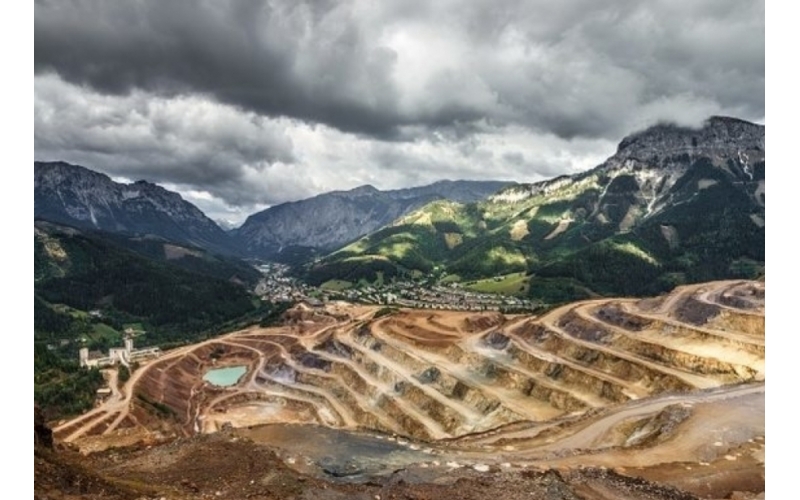
“We, as recently established "Environmental Protection First" Coalition condemn the response statement addressed by the Ministry of Environment of Armenia on the metallurgical plant under construction in Arazdayan (Yeraskh) of Vedibasar (Ararat) region of the Republic of Armenia in the border with Azerbaijan.
Establishing this large-scale metallurgical plant blatantly ignores internationally accepted standards and principles, particularly those outlined in the UN Economic Commission for Europe Convention on Environmental Impact Assessment in a Transboundary Context (Espoo Convention). The Espoo Convention recognizes that environmental issues go beyond national borders and underscores the importance of international dialogue when multiple countries are involved in specific cases. Erecting such a facility along the border without mutual agreement from the Azerbaijani side constitutes a clear breach of the 1991 Espoo Convention, which focuses on evaluating the environmental impact in situations spanning borders. Both Azerbaijan and Armenia have ratified this Convention. Following the guidelines of the Espoo Convention, the environmental assessment report related to the construction should be examined by relevant Azerbaijani institutions, taking into account the perspective of neighboring Azerbaijani residents who live in close proximity to the area, as well as eco-activists.
Regarding the construction of such a sizable plant, Armenia has never contacted any institution or any affected population in Azerbaijan on environmental interventions in the transboundary contexts. As the famous ecologist, Garrett Hardin cited that all watercourses are free to pollute, the right to exploit common land should be controlled by law and the individuals concerned should achieve mutual restraint by consensus. Otherwise, it will be “tragedy of commons”.
The response from the Armenian side is a denial of the cooperation, violation of the Espoo Convention, and deviating from the subject matter. Armenia should create a suitable environment to actively engage in dialogue and decision-making processes related to the construction, to conduct technical expertise, monitoring, and evaluation by involving international NGOs and civil society representatives from countries in the region (including NGOs from Azerbaijan and Georgia) to measure the extent of the damage and potential solutions.
Referring to Articles 3.1 and 3.7 of the Espoo Convention, as well as Clause 4 of Annex I of the same Convention, the Azerbaijani side has formally requested comprehensive details from Armenia concerning the adverse cross-border impacts stemming from the activities undertaken in the Arazdayan (Yeraskh) region. Providing this information falls under Armenia's international commitments. The unsubstantiated accusations made in Armenia's response regarding Azerbaijan's engagement in firing at Arazdayan (Yeraskh) are entirely incorrect and unacceptable. While we are raising our profound concerns about the ecological catastrophe caused by environmental harm, however Armenia deliberately deviates from the subject by politicizing it. Such provocations cannot serve as a camouflage for environmental offenses.
Instead of furnishing official data, Armenian official bodies appear to be attempting to persuade media outlets that the potential repercussions will be minimal. Regrettably, this stance contradicts the requirements of the Espoo Convention.
Preliminary observations on our part reveal that environmental monitoring and impact assessment reports issued by mining enterprises operating in Armenia, spanning soil, air quality, surface and groundwater conditions, as well as flora and fauna, are not being made fully accessible to the general public.
The 2022 Armenia Country Report from the Extractive Industries Transparency Initiative (EITI) highlights that certain mining firms failed to generate environmental monitoring reports for the period of 2020-2021, and the country did not make the environmental assessment findings available to the public.
Considering the aforementioned circumstances and the accumulating public discontent arising from the detrimental influence of Armenia's mining sector on Azerbaijan's ecological environment over the years, our coalition anticipates the complete disclosure of the Environmental Impact Assessment (EIA) documents. The full texts of the EIA reports to be made public, as well as the numerous public dissatisfaction that has been growing due to the negative effects of Armenia's mining industry on the ecology of Azerbaijan for years. Armenia should acknowledge the legal obligation it bears in not withholding and disclosing these crucial environmental records.
We urge both domestic and foreign companies involved in Armenia's mining industry to promptly publish the Environmental Impact Assessment (EIA) documents, and the findings on their official webpages to make it publicly accessible. The right to information is an essential element of democracy and the rule of law. Concealing the information is a violation of human rights.
Armenia is required to meet its responsibilities by guaranteeing that impacted communities can obtain information about the activities of plants, engage meaningfully in the processes of decision-making, and have ways to address any environmental damage that occurs.
The United Nations Guiding Principles on Business and Human Rights provide a crucial framework for promoting responsible conduct in business, including the extractive industry. These principles underscore the need for companies to uphold human rights, prevent adverse environmental impacts, and engage with affected communities in a transparent and inclusive manner. We urge all stakeholders involved in metallurgical plant building in Arazdayan (Yeraskh) to align their actions with these principles and integrate them into their operational practice.”
Views: 74
